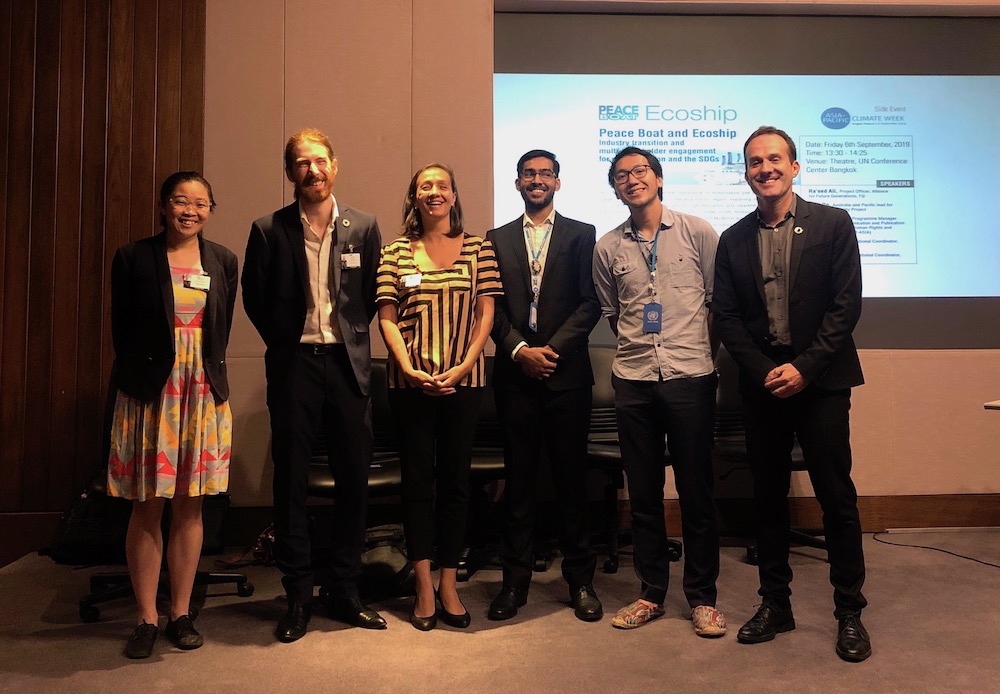Ecoship at the Asia-Pacific Climate Week in Bangkok
The Asia-Pacific Climate Week (APCW) in Bangkok, Thailand, wrapped up on September 6, with participants agreeing on a set of key takeaways on what steps urgently need to be taken for the region to be able to profit from the advantages of the transition to low carbon and to be able to build resilience to the worst impacts of climate change. An Ecoship delegation was at this conference and organized a side event titled “Industry transition and multi-stakeholder engagement for climate action and the SDGs”.
The side event looked at the importance of mobilisation and multi-stakeholder engagement for climate action in the Asia-Pacific region, exploring involvement with civil society and particularly youth through education and awareness-raising such programmes as Peace Boat’s Ocean and Climate Youth Ambassadors Programme. The speakers on the panel were Ms Linh Do, Australia and Pacific lead for The Climate Reality Project; Mr Ra’eed Ali, Project Officer, Alliance for Future Generations, Fiji; Mr Dinh-Long, Youth Economic Empowerment Consultant UNDP Asia-Pacific; and Ms Marte Hellema, Programme Manager Information, Communication and Publication for Asian Forum for Human Rights and Development (FORUM-ASIA). From Peace Boat, Daniel Read introduced some of the main projects lead by the organization related to the climate crisis and Chema Sarri gave details about the Ocean and Climate Youth Ambassadors Programme, a programme to raise awareness about climate change giving a voice to youth from Small Island States. He also introduced Ecoship as a future platform for this kind of programmes.
A key takeaway from the conference was that the Asia-Pacific Region can lead the global transformation in line with a 1.5 degree, climate-resilient world. Holding the global average temperature rise is the central goal of the Paris Climate Change Agreement. Participants at the gathering agreed that the transformation to low carbon and resilience in Asia can be driven not only by governments but by dynamic subnational regions and cities, an innovative private sector, political leadership and the financial sector.
The conference was one of several regional conferences including others in Latin America and Africa of which the messages will important input to the Climate Action Summit convened by the UN Secretary-General on 23 September in New York. The results will also help build momentum towards the UN Climate Change Conference (COP25) that will take place in Santiago, Chile, 2-13 December 2019.
